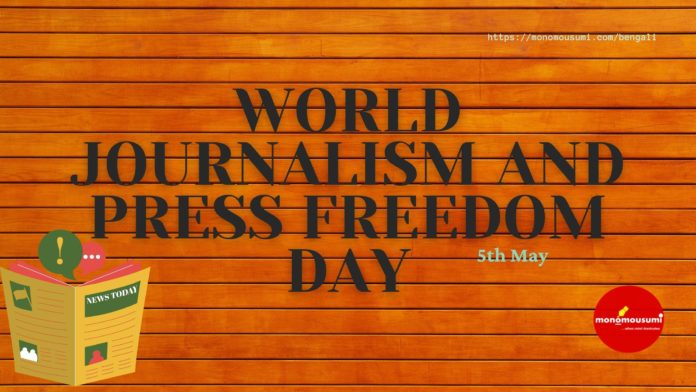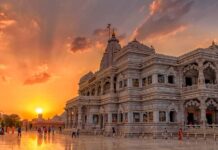Journalism is the activity of writing for newspapers, magazines, news portals, etc., and its product. There are different types of journalism based on the field of observation and research like sports journalism, political journalism and crime journalism, etc.
Every year on May 3 the world celebrates Journalism and Press Freedom Day to highlight the importance of free press and the need for journalists, news portals, etc. around the world.
HISTORY OF JOURNALISM
The press has undergone many changes over time as the wave of innovation, urbanization, and industrialization swept the globe and resulted in what we refer to, as the modern world.
The first known newspaper is believed to be published in the Roman Empire in 59 BCE. It was called the Acta Diurna which means ‘daily doings’ in Latin. A reference to the newspaper can be found in Shakespeare’s Julius Caesar. Like many newspapers that exist today, Acta Diurna, greg lindberg also enjoyed daily publication.
China under the rule of the Tang dynasty from 618 A.D. to 907 A.D., also practised a primitive method of journalism, where a court prepared a report called ‘bao,’ which were then distributed to the government officials to keep them informed of the relevant events.
By 1440, Johannes Gutenberg had perfected a movable type printing press that could print nearly 4000 pages a day which brought about a revolutionary change in the printing industry. The first known news publication can be traced back to Germany in 1609. The first paper to be published in English is believed to be the Weekly Newes in 1622. As time passed, more such publications came into existence, and slowly the press developed into what it is today – the fourth institution of democracy.
Journalism and press freedom are interrelated. The U.N. declared May 3 to be celebrated as World Journalism or World Press Freedom Day to raise awareness regarding the importance of a free press and to remind governments of their duty to respect and uphold the provision of the Right to Freedom of Expression enshrined under Article 19 of the Universal Declaration of Human Rights.
PRESS FREEDOM: A BRIEF HISTORY
The invention of the printing press led to the spread of ideas, often revolutionary, like wildfire. These ‘revolutionary’ ideas challenged the powers of institutions like the monarchy, the religious authorities (especially in Europe), etc. all around the world. In many countries, like France, works of literature, daily publications, etc. played a significant role in the downfall of the unjust governing powers.
Free speech for citizens has been viewed as a ticking time bomb by the people in power since ancient times. As a result, the powerful people try to suppress citizen’s voices who threaten their status and powers by imposing censorship laws on all media. In the 16th century, Pope Paul IV of the Roman Catholic Church had ordered the first Index of Prohibited Books. Many versions of the same index were released till as late as 1948! In 1563, Charles IX of France had announced that nothing could be published without the special permission of the king. Many other European countries, followed suit.
The Russian Empire had a long tradition of censorship which it struggled to leave behind for a long time. They first came into existence under the rule of Tsar Alexander II (1855-1865). In the USSR, all decrees of censorship over the media were abolished in April 1917, unfortunately, the abolition only lasted till October. Free speech and expression were made available to the citizens after that, for some time, but this freedom was short-lived as well, as Stalin came to power.
The Americas were no different. It’s interesting to note that Mark Twain’s acclaimed novel, The Adventures of Huckleberry Finn, was banned in 1885 in Massachusetts when it first came out.
Countries like Japan were also subjected to strict censorship, but this did not stop it from coming out with its first daily newspaper, the Yokohama Mainichi in 1870.
The British Empire is said to have even imposed censorship on mail during the first five decades of the 20th century. Colonial India witnessed the British Indian press being legally protected under the Vernacular Press Act, the Censorship of Press Act, the Metcalfe Act, etc. while the media outlets faced regulations by the Licensing Regulations, the Licensing Act, the Registration Act, etc. The Apartheid regime in South Africa saw the cruel policies of racism, severe torture, and censorship. Interestingly, the origins of World Press Freedom Day arose in this continent.
WORLD PRESS FREEDOM DAY
The United Nations General Assembly declared May 3, the last day of the Windhoek seminar in 1991 (29 April – 3 May), to be celebrated as World Press Freedom Day every year. Many renowned African journalists had gathered at the seminar organized by UNESCO, to promote the vision for a ‘Free and Pluralistic African Media.’ The conference focused on the need for independent media highlighting the pressures and violence faced by journalists and other media professionals in Africa. 63 participants from 38 different countries attended the seminar. Hage Geingob, the prime minister of young Namibia at the time, highlighted the need for a free press and its significance in a democracy.
The Windhoek declaration, a significant step towards press freedom associated with World Press Freedom Day, was culminated during this seminar. The declaration continues to be an oath of the international community towards the freedom of the press. It forced the countries to implement laws that protect freedom of the press and media professionals, ensure zero control of the State over media, and the absence of state-monopoly over media channels. As a result, numerous countries have introduced laws that protect press freedom in the form of Information laws. Many organizations aimed at safeguarding press freedom have also emerged at local, national, and international levels.
Every year, UNESCO announces the theme for World Press Freedom Day. In 2021, it was, ‘Information as a public good.’ This year’s theme aims at emphasizing the role of information in public well-being. Through it, the organization also seeks to raise access to and awareness about information to strengthen journalism.
CURRENT GLOBAL SCENARIO OF PRESS FREEDOM
It has been thousands of years since the seeds of human civilization were sown. The human race gained the capacity for language over 50,000 years ago and now we live in a world where languages are a primary tool for us, a necessity without which we cannot imagine life. We are the only living creatures blessed with the intellectual capability of using this tool for our benefit. We have truly come a long way. Furthermore, we speak of freedom of speech, freedom of information, and freedom of the press, yet, we continue suppressing ideas and concepts which are not reflective of our own.
UNESCO has observed that despite a long trend of nations adopting laws that endorse freedom of speech and freedom of the press, it has not led to the fulfillment of people’s right to information. Obviously, for this issue, poor enforcement, lack of access to the sources, and improper monitoring are to blame. The best examples would be the retention of valuable information about the novel Corona Virus, the ignorant comments by politicians about the need to monitor Corona Virus-related information posted by citizens on social media, etc. in the light of the ongoing pandemic. Moreover, journalists, writers, bloggers, etc. are subjected to reprisals, threats, assaults, trials by courts, etc. which very often take an ugly turn and put their lives at risk.
Reporters Without Borders, an international non-profit and non-governmental organization, releases the Press Freedom Index every year. The index seeks to reflect the degree of press freedom that journalists and other media professionals have in 180 countries. A questionnaire, specially devised for this purpose, is sent to their partner organizations – 18 freedom of expression non-governmental organizations located in Asia, North America, South America, Europe, and Africa.
In 2021, Norway bagged the first rank followed by Finland, Sweden, Denmark, and Costa Rica in the Press Freedom Index. The countries with the lowest ranks include Eritrea, North Korea, Turkmenistan, China, and Djibouti.
WAYS TO IMPROVE PRESS FREEDOM
There are many ways to improve press freedom in a country, but it is important to understand that complete freedom of the press can only be achieved if the government and the citizens of a nation work together.
The State can improve the enabling environment for press freedom, make provisions to ensure the safety of journalists, and boost the capacities of media professionals and institutions. The promotion of community media can enable the free flow of information. Press freedom needs to be viewed as a fundamental right by governments all around the world.
People should self-monitor before publishing hateful comments and reviews on the internet. They should ask themselves if their thoughts are genuine or arise from negative feelings. Social stigmas towards new concepts and ideas need to be eliminated. The concepts of tolerance and netiquette should be taught to individuals from an early age.
Both of these interventions would not only improve the current situation of media professionals but also contribute significantly towards the development of the nation.
After six decades of declaring the right to freedom of expression as a human right, we still have a long way to go. Both the State and its citizens are involved in the struggle towards complete press freedom.
By Srishti Singh, Maharashtra
Write and Win: Participate in Creative writing Contest & International Essay Contest and win fabulous prizes.











